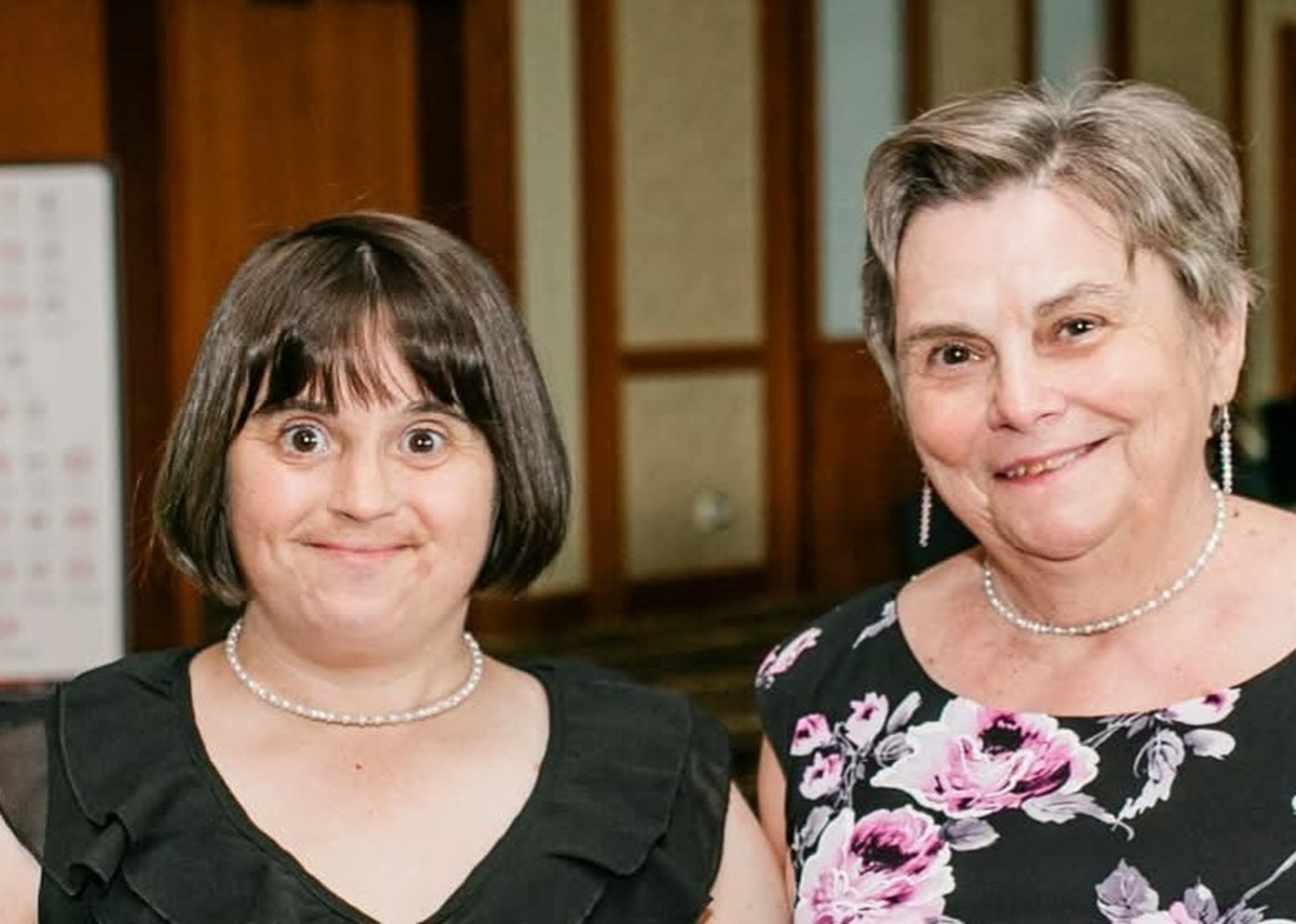Canadians with Down Syndrome Living Longer, Yet Dying Prematurely, Study Reveals

Increasing Life Expectancy for People with Down Syndrome in Canada
Janet Charchuk, a 42-year-old woman from Alberton, P.E.I., is aware that having Down syndrome increases her risk of developing Alzheimer’s disease at a younger age than the general population. “It is something that I do worry about at times,” she shared in an interview from her home. However, she is taking proactive steps to reduce this risk.
Charchuk focuses on maintaining a healthy lifestyle through proper diet, sufficient sleep, and regular exercise. She also emphasizes the importance of social interaction and mental stimulation. Her favorite mental activity is solving word searches, and she stays physically active by working at an equine therapy ranch, participating in the Special Olympics, and serving on the board of Down Syndrome International.
Her efforts reflect a growing trend among people with Down syndrome who are living longer and more fulfilling lives. According to a recent study, there were approximately 22,367 individuals with Down syndrome in Canada as of 2020, with 30% of them aged 40 or older. The average lifespan for someone with Down syndrome in Canada is now around 60 years, a significant increase from the 53 years in 1970. In 1950, only about one per cent of people with Down syndrome lived past the age of 40.
Despite this progress, the life expectancy for people with Down syndrome still lags far behind the Canadian average of 82 years. Dr. Brian Skotko, senior author of the study published in the journal Genetics in Medicine, highlights that Alzheimer’s disease remains the primary cause of death among adults with Down syndrome. Complications such as falls, memory loss, and choking often result from the condition.
People with Down syndrome have an extra copy of chromosome 21, which is associated with amyloid plaque linked to Alzheimer’s disease. This genetic factor contributes to their higher risk of developing the condition at a younger age. Skotko, who leads the Down syndrome program at Massachusetts General Hospital in Boston, has spearheaded several studies to better understand the population of people with Down syndrome across different countries, including the U.S., Australia, New Zealand, and Europe.
Laura LaChance, co-author of the study and executive director of the Canadian Down Syndrome Society, emphasizes the need for accurate data to ensure that people with Down syndrome receive appropriate policies, information, and support. Historically, the system has treated Down syndrome as a pediatric issue, leaving many adults without adequate resources. “The system hasn’t kept up with the needs of adults with Down syndrome,” she said.
Advocates and medical professionals are working to change this by educating healthcare providers about the unique health challenges faced by adults with Down syndrome. These include screening for conditions like cardiovascular risks, underactive thyroid, and sleep apnea. Heidi Diepstra, lead of the developmental disabilities primary care program at Surrey Place in Toronto, notes that preventive care is essential because adults with Down syndrome may not always communicate their symptoms clearly.
Annual health exams are particularly important for people with Down syndrome, even though they are no longer recommended for the general population in some provinces. Diepstra helped develop a specific "health watch" checklist for Down syndrome, created by the College of Family Physicians of Canada. The checklist aims to prevent "diagnostic overshadowing," where symptoms are mistakenly attributed to Down syndrome rather than being investigated further.
While the checklist was first developed in 2011, it is expected to be revised once more funding becomes available. Despite its value, Diepstra believes it needs to be more widely adopted in medical practice to meet the needs of patients with Down syndrome. “Health disparities continue to exist for people with intellectual and developmental disabilities,” she said, stressing the need for greater awareness and use of these tools among healthcare providers.
Dr. Liz Grier, a family doctor and medical director at Ongwanada Developmental Services in Kingston, Ont., notes that both physical and emotional care for adults with Down syndrome has improved over the years. Whether living with aging parents or in supportive housing, individuals with Down syndrome are benefiting from better access to medical and social services. “There's better involvement of medical and social service supports in terms of engaging day programming and other activities,” she said.
Grier believes that further improvements in care can lead to even longer life expectancy. She emphasizes the importance of family members and caregivers being vigilant about both physical and mental health symptoms so that early screening and treatment can occur. Managing the high risk of Alzheimer’s disease is also possible through interventions like ensuring adequate vitamin B12 intake and treating sleep apnea.
Supporting people with Down syndrome to live a fulfilling and engaging life is crucial in preventing dementia. “Keep the brain stimulated, keep the brain healthy with the right vitamins and nutrients, stay active from a physical health perspective — all of those pieces contribute,” Grier said.

Post a Comment for "Canadians with Down Syndrome Living Longer, Yet Dying Prematurely, Study Reveals"